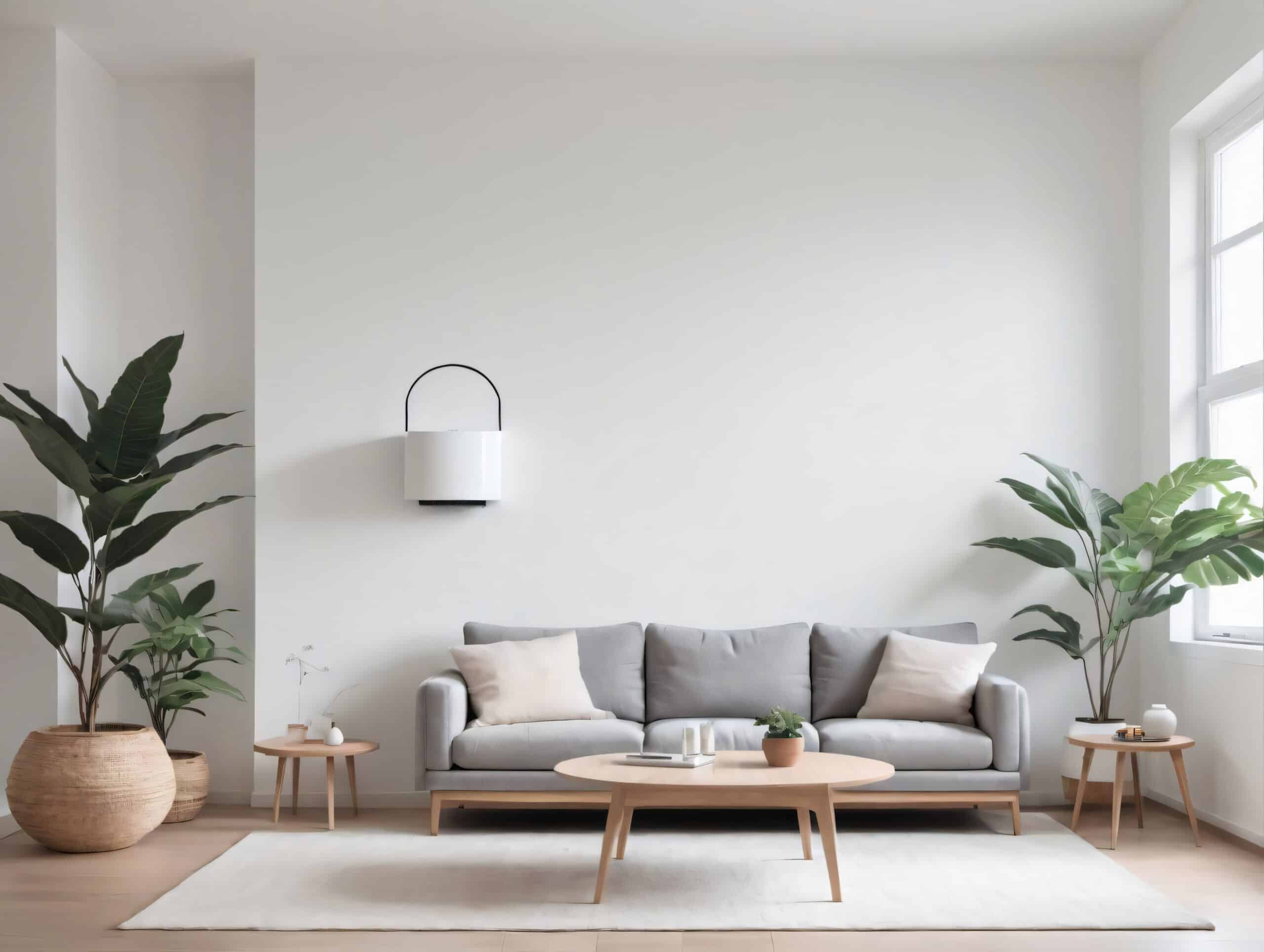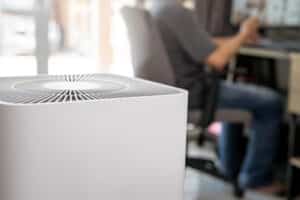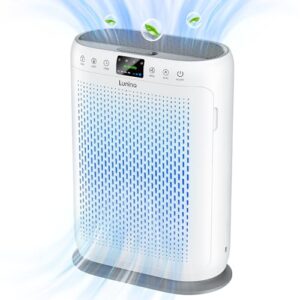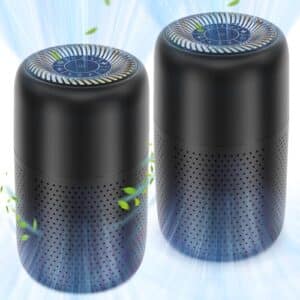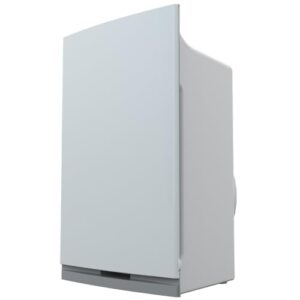What is an Air Purifier and How Does it Work?
Key Takeaways
- An air purifier is a device designed to improve indoor air quality by removing pollutants, allergens, and particles from the air.
- The main components of an air purifier are a filter and a fan. The filter captures contaminants, while the fan circulates and cleans the air.
- There are different types of filters used in air purifiers, including HEPA filters for capturing particles, activated carbon filters for removing odors and chemical pollutants, and UV filters for destroying bacteria and viruses.
An air purifier is a device designed to improve indoor air quality by removing pollutants, allergens, and particles from the air. It works by using a combination of filters and fans to circulate and clean the air in a living space. The process involves drawing in air, trapping contaminants, and then releasing clean air back into the room.
How Does an Air Purifier Work?
There are different types of air purifiers available, but most of them operate using similar principles. The basic components of an air purifier include a filter and a fan.
Filtration Process
The filter is the main component responsible for capturing pollutants and particles. It is usually made of paper, fiber, or mesh material. As air is drawn into the air purifier, it passes through the filter. The filter’s small pores or fibers trap and retain the contaminants, allowing only clean air to pass through.
Fan Functionality
The fan in an air purifier helps to circulate the air. It draws in the surrounding air and pushes it through the filter. This continuous circulation ensures that a large volume of air is processed and purified over time.
Types of Filters Used in Air Purifiers
The filters used in air purifiers can vary depending on the specific contaminants being targeted. Here are some common types of filters:
HEPA Filters
HEPA (High-Efficiency Particulate Air) filters are widely used in air purifiers. They are highly effective in capturing particles as small as 0.3 microns, including dust, smoke, pollen, pet dander, and mold spores. HEPA filters can achieve high capture rates of airborne pollutants, making them a popular choice for improving indoor air quality.
Activated Carbon Filters
Activated carbon filters are designed to remove odors, gases, and chemical pollutants from the air. They contain a porous form of carbon that can adsorb and trap various volatile organic compounds (VOCs), such as those emitted by cleaning products, paints, and certain building materials.
UV Filters
Some air purifiers use UV (ultraviolet) filters to destroy certain types of impurities, such as bacteria and viruses. UV light has germicidal properties that can neutralize microorganisms by damaging their DNA. However, it’s important to note that UV filters may not be as effective in capturing other types of pollutants.
Ionizers
Ionizers release negatively charged ions into the air, which attach to positively charged particles like dust and allergens. This causes the particles to become heavier and fall out of the air, making them easier to clean. However, ionizers may produce ozone as a byproduct, which can be harmful in high concentrations.
Effectiveness of Air Purifiers
Air purifiers are designed to filter out particles like dust, smoke, pollen, and pet dander. They can help improve indoor air quality, especially for individuals with allergies or respiratory conditions. Research suggests that HEPA air purifiers can be effective in reducing the concentration of indoor allergens.
However, it’s important to note that air purifiers may not capture gases or allergens embedded in furniture or flooring. They may not be completely effective in removing gaseous pollutants such as VOCs and non-particle components of smoke. The actual efficacy of an air purifier at preventing COVID-19 transmission is still unknown and requires further research.
Air purifiers can be particularly beneficial for individuals living in areas affected by pollution or natural disasters like wildfires. They can help filter outdoor air that enters the home, reducing the concentration of fine smoke particles caused by wildfires and wood burning.
Benefits of Using an Air Purifier
The benefits of using an air purifier include:
- Removing small particles of dust, smoke, pet dander, pollen, and more from the air.
- Improving indoor air quality, especially for those with allergies or respiratory conditions.
- Reducing the need for medications and improving symptoms related to allergic diseases.
- Decreasing the concentration of fine smoke particles caused by wildfires and wood burning.
- Removing airborne particles such as dust mites, pet dander, and mold spores.
- Potentially reducing the concentration of bacteria and viruses in the air, although more research is needed in this area.
Recommended Air Purifiers
Based on expert recommendations, here are some highly-rated air purifiers:
- Levoit LV-H132 Personal True HEPA Air Purifier
- Clorox Medium Room True HEPA Air Purifier
- Dyson Purifier Hot+Cool Gen1 HP10
- Levoit Core 400S Smart Air Purifier
- Levoit Core P350 Pet Care Air Purifier
- Coway Airmega AP-1512HH Mighty
Each of these models offers different features and capabilities, catering to various needs and preferences. It’s important to consider factors such as room size, filter lifespan, noise level, and additional features when choosing an air purifier.
Related Websites:
FAQs:
Q: What are the benefits of using an air purifier?
Using an air purifier can help improve indoor air quality by trapping and filtering out particles such as dust, pollen, pet dander, and smoke. This can lead to reduced allergies, respiratory issues, and overall better health for you and your family.
Q: Are air purifiers noisy?
Many modern air purifiers are designed to operate quietly, so they won’t disturb your daily activities or sleep. Look for air purifiers with low decibel levels if noise is a concern for you.
Q: Do air purifiers remove odors?
Yes, air purifiers can help remove odors from indoor spaces by filtering out particles that cause bad smells. Some air purifiers also come with activated carbon filters specifically designed to tackle odors.
Q: Can air purifiers help with allergies?
Absolutely! Air purifiers can be incredibly beneficial for those with allergies as they can help remove allergens like dust and pollen from the air. By reducing the allergen load in your home, air purifiers can provide relief for allergy sufferers.
Q: How often should I change the filters in my air purifier?
It’s recommended to change the filters in your air purifier every 3-6 months, depending on usage and the manufacturer’s recommendations. Regularly changing the filters will ensure that your air purifier continues to operate effectively and provide clean air.

